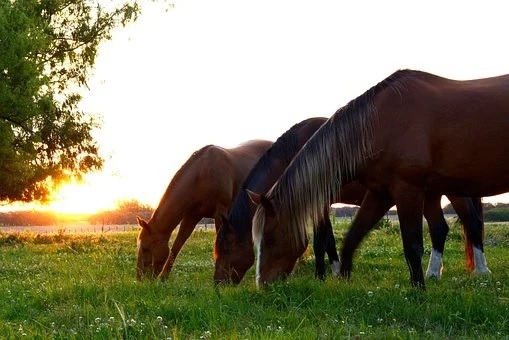Horses are majestic creatures; they are impressively strong, intelligent, emotional, reliable, and energetic. They can also help you stay fit. Horseback riding is a great outdoor activity that allows you to stay fit while reconnecting with nature. What makes horses appealing to many people is the fact that they are easy to take care of. It is a big commitment to keep a horse, but it is very simple to provide them with shelter and feed them. Keeping your horse strong and fit starts by providing it with a healthy diet.
Here are some useful feeding tips to help you ensure your horse’s wellbeing.
Assess Their Condition
Similar to any diet people follow, you should learn more about the body condition of your horse. This way you will know how to feed it properly. You can accurately evaluate the condition by resorting to the equine body condition scoring. It is a system used to provide standards to assess the amount of fat accumulation in important areas of a horse’s body. It takes values from 1 to 9. A score of 1 is too thin, and that of 9 means extremely fat. The ideal score is between 4 and 6, where the horse should have moderate fat behind the shoulders, over the crest of the neck, the trailhead, the loins, and the ribs.
Provide Plenty of Forage
Horses get the most nutritional value from grassy stems. A lot of trail and pleasure horses do not require grains in their diets, as pasture or hay can suffice. Forage should be added to the mix when hay is not enough. It is a plant material that serves as food for livestock. However, horses need certain amounts of minerals, vitamins, and proteins to stay healthy, which they may not get from forage alone. This is why a horse feed balancer is necessary, as it can help your horse get their needed caloric intake for the day. By including these balancers in your horse’s diet, you can ensure that they get the necessary nourishment. They will help prevent nutritional deficiency and malnourishment, all without increasing their weight.
Minimize the Grains
Grains can certainly energize your horse, as they contain sugar, starch, and simple carbohydrates. However, a horse’s digestive system is delicate, and too much grain can lead to serious health risks. If you overfeed the horse with grains or if the horse consumes them quickly, they pass through its stomach and get fully absorbed by the small intestine. When this happens, horses can face problems, such as digestive imbalance, colonic ulcers, or in worse cases, laminitis and colic. To avoid dealing with this, it is better to feed your horse grains in moderation alongside hay or pasture.
Do the Measurements
As previously mentioned, the weight of the horse matters in order to feed it properly. You should measure the feed by using a scale from the kitchen or the local feed store. When you determine the typical ratio, refer to it every time you feed your horse. You can use a coffee can, a scoop, a jar, or any container you would like to use. On average, horses of one thousand pounds consume around twenty pounds of pasture or hay daily. The most important thing to remember is not to overfeed your horse. You can refer to a professional horse caretaker for help on the measurements.
Follow a Routine
Horses are active animals, and they rely greatly on routines in their lives. This is attributed to the impressive biological clocks that make them great timekeepers. Horses should be kept on a feeding schedule. This helps them stay in shape. While horses are not negatively affected by a sudden change in the routine, some may be prone to digestive diseases. So, if you decide to make a change, it is better to do it gradually.
Age Matters
With horses, age is not just a number. The younger they are, the higher their nutritional needs will be. In general, horses require five main types of nutrients: proteins, vitamins, water, minerals, and energy nutrients present in carbs and fats. As horses age, their digestive systems grow weaker. This means they should follow an adaptive diet to get those nutrients effectively.
Getting the needed nutrition is how you nurture a strong and healthy horse. To take care of your horse, you need to pay attention to what they eat and learn the best methods of feeding them. Because many factors determine the portion and type of the feed, you should start by knowing the weight and age of your equine friend. With the tips mentioned here, you can ensure the health and fitness of your horse.

